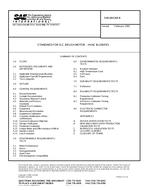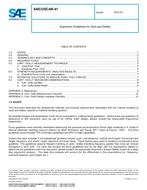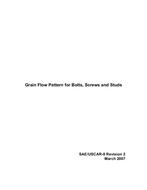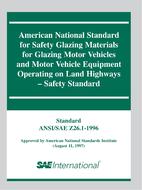Description
This SAE Aerospace Recommended Practice (ARP) aims at providing general utilization guidelines and calculation methods adequate to guarantee the effectiveness and ultimate load strength of tie-down/lashing arrangements performed to restrain cargo on board civil transport aircraft during flight:a. cargo loaded and tied down onto airworthiness certified air cargo pallets, themselves restrained into aircraft lower deck, main deck or upper deck cargo systems meeting the requirements of NAS 3610, orb. additional tie-down on aircraft structure when necessitated by pallet maximum gross mass or CG, orc. non-unitized individual pieces of cargo, or pieces of cargo placed onto an unrestrained (“floating”) pallet into either lower deck or main deck containerized cargo compartments of an aircraft, or d. individual pieces of load loaded in non-containerized (bulk loaded) baggage or cargo compartments.This document aims at providing industry recognized means of complying with Airworthiness Authorities general regulations applicable to load securing on board civil transport aircraft (see FAR Parts 25 and 121, in 2.1, Applicable Documents), and aircraft manufacturers Authority approved Weight and Balance Manuals for each aircraft type as specified therein. It is not the intent of this document to specify when restraint straps should be used, but how they should be used. It shall not, under any circumstance, supersede the requirements of any of these documents, which shall take precedence at all times.This document, therefore, provides recommended practical means of compliance with flight safety objectives, intended to be available as a common base for carriers as well as their airport handling agents when establishing their own in-house publications and staff training programs.This document is not intended to apply to cargo restraint on board military transport aircraft, and does not take into account any specific criteria for military aircraft. Nothing, however, precludes it being used for guidelines in this case, it pertaining to the military operator to identify and implement any additional applicable criteria.
Product Details
- Published:
- 03/01/2003
- File Size:
- 1 file , 500 KB




